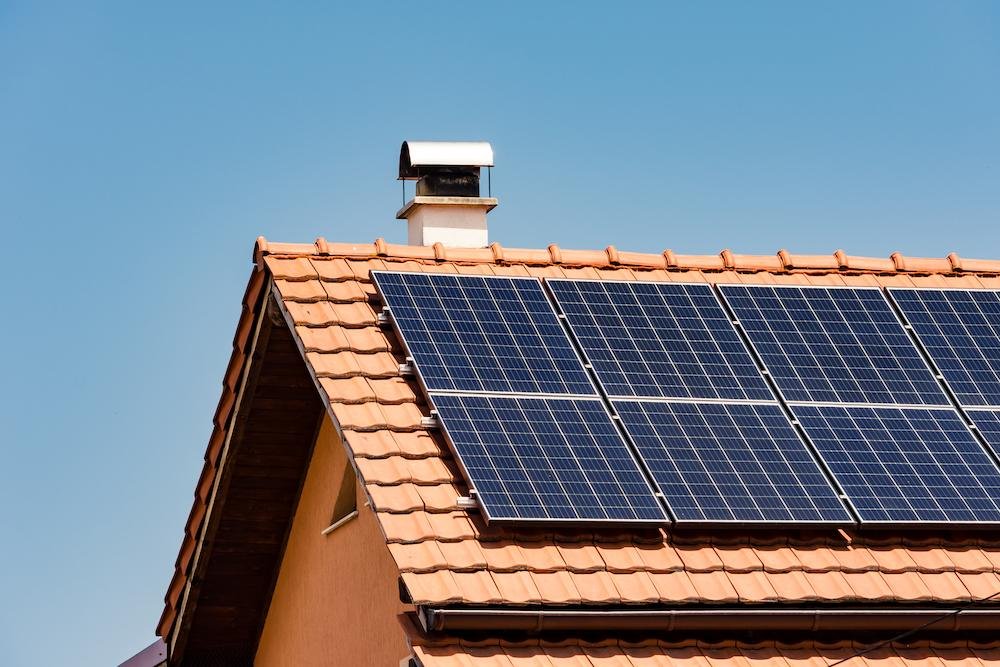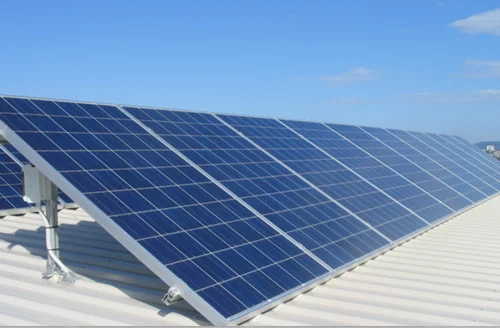The best solar panels for home are more than just a technology upgrade they are a way to power your house with clean sunlight, cut electricity bills, reduce pollution, and even boost property value. More and more families are now considering residential solar systems because they bring both financial savings and environmental benefits. Instead of relying only on expensive grid electricity, homeowners can now generate solar energy for home use directly from their rooftops. This not only lowers monthly costs but also builds energy independence while acting as a strong investment in the future.




When choosing the best solar system for house use, several things matter: your climate, your energy needs, your budget, and how much roof space you have. In 2025, home solar panel prices have dropped compared to the past, while solar panel warranties are now stretching up to 40 years giving peace of mind for decades. Today’s most efficient solar panels for home use can convert up to 24% of sunlight into electricity, which means fewer panels are needed, even for small rooftops. For renters, plug-and-play solar for apartments or balcony solar kits provide affordable and flexible options. With so many choices, homeowners are asking the same question: what really is the Best Solar for House in 2025?
What Makes a Solar System Ideal for Homes
An ideal residential solar system balances efficiency, durability, and cost. High-efficiency panels maximize output on smaller rooftops, while affordable models allow large homes to generate more power without overspending. Longevity is critical, choosing panels with warranties of 25–40 years ensures your investment lasts. You should also think about whether you need grid-tied solar systems for homes, off-grid solar systems for houses, or hybrid solar systems for home use. Renters or apartment dwellers may prefer portable solar for home backup or balcony solar kits, which are simple and cost-effective.
Top-Rated Solar Panels for Efficiency & Longevity
- Maxeon 7 / Maxeon 6 – Industry leaders with ~24% efficiency and the longest warranty for residential solar panels (up to 40 years). Perfect for maximizing performance.
- JA Solar, REC Group, Canadian Solar, VSUN – Strong contenders in the 22–23% efficiency range with long-term reliability.
- Longi, Jinko, Trina, Canadian Solar – Excellent value brands, widely available, with efficiency around 21–22% and durable performance for hot or dusty climates.
Affordable & Reliable Picks
For those asking how much does it cost to install solar panels on a house, the good news is that solar panel cost per watt for home systems has dropped. Affordable yet reliable options include:
- REC Alpha Pure-R – Great balance of value and efficiency (up to 23%).
- Q Cells Q.PEAK Duo – Cost-effective and reliable for mid-sized homes.
- Canadian Solar HiKu6 – Solid performance at lower prices, making it one of the best affordable solar brands for homes.
Easy Plug-In Alternatives: Balcony Solar Kits
Not everyone has a rooftop. In that case, balcony solar kits for renters or plug-and-play solar for apartments are a fantastic choice. These start at around $400 and are powerful enough to run small appliances like refrigerators. They’re lightweight, portable, and easy to install without professionals ideal for renters or those testing solar before a full upgrade.
Cost, Savings & Incentives in 2025
One of the biggest questions is: Is solar worth it for homes? Absolutely. Thanks to falling prices and incentives, solar ROI calculators show payback periods averaging 7–10 years. After that, you enjoy nearly free power for decades. Monthly savings with solar panels can reach hundreds of dollars, depending on location and system size.
Government incentives make solar even more attractive. In the U.S., the federal solar tax credit 2025 covers up to 30% of installation costs. Many states also provide solar panel financing options for homes including zero down solar for house plans, rebates, and solar leasing vs buying programs.
Choosing the Right System for Your Home
Here’s a simple guide:
- Maximize efficiency → Maxeon 7 / Maxeon 6
- Best overall value → Canadian Solar, Jinko, Trina, Longi
- Tight budget → REC Alpha Pure-R, Q Cells Duo, Canadian Solar HiKu6
- Small rooftops → High-efficiency panels or balcony kits
- Harsh conditions → Canadian Solar, Longi, or Trina (best solar panels for hot or dusty climates)
Also, think about solar battery storage for houses if you want backup during outages. For EV owners, solar plus EV charging at home is a rising trend in 2025.
Maintenance & Lifespan
Wondering how long do solar panels last on houses? Most now last 25–40 years, with warranties to match. Panels lose only about 0.3–0.5% efficiency per year (solar degradation rate per year). Basic solar panel cleaning & maintenance tips include rinsing dust off panels and checking wiring annually. And yes solar panels do work during cloudy days or rain, though output is lower.
Future of Home Solar in 2025 and Beyond
The future looks bright. Smart home solar systems 2025 now integrate with AI monitoring to maximize efficiency. Some panels come with integrated batteries for seamless storage. Solar roof tiles vs solar panels are gaining popularity for homes that prefer a sleek design. The rise of solar plus EV charging and net metering policies is making homes more energy-independent than ever.
Conclusion
In 2025, the Best Solar for House balances efficiency, cost, and durability. High-end models like Maxeon provide the most efficient solar panels for home use, while affordable options from Canadian Solar, Jinko, and Trina deliver excellent long-term value. For smaller rooftops, high-efficiency panels are ideal, and for renters, balcony solar kits or portable solar for home backup offer easy entry points.
The cost of solar panels for house use has dropped, government incentives are generous, and warranties are stronger than ever. Whether you go for grid-tied, off-grid, or hybrid solar systems for home, the investment pays off within a decade and keeps generating savings for years. On top of that, you’ll be contributing to a cleaner planet.
Choosing the Best solar panels for home in 2025 is easier than ever, thanks to advanced technology and flexible financing options. By selecting the right system for your climate, budget, and energy needs, you’ll enjoy lower bills, higher property value, and reliable clean power for decades to come.
FAQs
1. Which are the most efficient solar panels in 2025?
Maxeon leads with ~24% efficiency, followed by REC, JA Solar, Canadian Solar, and VSUN (22–23%).
2. How much does it cost to install solar panels on a house?
In 2025, the average solar panels for house cost ranges from $2.25 to $3.50 per watt, depending on brand and location.
3. Is solar worth it financially?
Yes most systems pay back in 7–10 years, with decades of savings afterward.
4. How many solar panels do I need for my house?
It depends on your electricity usage and sun hours. An installer can size your solar panel wattage for homes correctly.
5. What’s better: off-grid vs on-grid solar for homes?
On-grid is best for most homeowners, but off-grid or hybrid systems are great for remote areas or those wanting independence.
6. Do solar panels work in bad weather?
Yes they produce less during cloudy or rainy days but still generate power.
7. What financing options are available?
Homeowners can choose solar loans, leasing vs buying, or zero down solar plans, plus enjoy the federal solar tax credit 2025.
8. How long do panels last?
Most modern panels last 25–40 years with proper maintenance.

